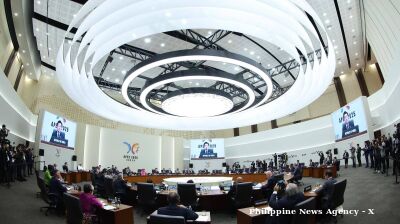Three quarters of Slovaks (74.1%) believe the US and Nato are responsible for the increasing tension between Ukraine and Russia, shows a poll carried out by Focus agency for TV Markiza.
Only 34.7% of Slovaks blame Russia for the conflict on the Ukrainian border. 21.2% of respondents do not know.
The difference in responses was recorded among voters of various parties. Among the voters of government parties OLaNO, SaS (Freedom and Solidarity) and Sme Rodina (We Are Family), 59.1%, 65.5% and 41.2%, respectively, believe that Russia is responsible for the tension, while 90.3% of the far-right Kotleba´s Peoples Party (LSNS), 78.6% of the parliamentary opposition party of former PM Robert Fico Smer-SD and 54.1% of Voice-SD led by the former PM Peter Pellegrini blame US and Nato.
According to a report on Euractiv, Smer-SD, the government party in 2006-2010 and 2012-2020, which lost its dominant position after the murder of investigative journalist Jan Kuciak and his fiancee Martina Kusnirova, has recently intensified its anti-American rhetoric to attract new voters, while bringing back old ones.
Just recently, Fico has been most vocal about the defence agreement (DCA) between the US and Slovakia. The DCA will allow the US airforce to use Slovak military airports of Malacky-Kuchyna and Sliac and potentially other facilities without a request of rental payment, for a period of 10 years.
According to Fico, the DCA will allow Ukrainian insurgents to be trained in Nato’s eastern border with Ukraine, such as Poland, Romania and Slovakia. "Smer-SD doesn’t want any US bases in Slovakia, it is against the contents of the DCA, and definitely doesn’t want Ukrainian insurgents to be trained in the country," he said earlier in January, stressing that this is a sufficient reason to trigger a public referendum on whether the Slovak citizens want "US military bases and the training of Ukrainian insurgents" on their territory.
The signing of the agreement is expected to take place on Thursday, February 3, confirmed the defence ministry spokeswoman Martina Koval Kakascikova. "We're very grateful to all responsible people and politicians who recognise the rationale and need for this agreement for closer cooperation with our strategic partner in the field of defence and security. It's a responsible move and a strong message about Slovakia’s orientation," Defence Minister Jaroslav Nad was quoted by the Slovak News Agency as saying.
As shown by recent political preferences, based on a Focus poll, both Voice-SD and Smer-SD would lead in the elections, were they held in January, with 17.8% and 16.3% of votes, respectively. Compared to a poll conducted by Focus agency for TV Markiza in November last year, the support for Smer-SD increased by 1.3 percentage points (pp), while according to a poll by the AKO agency for Slovak TV JOJ, Smer-SD from December improved even by 2.6pp. Support for Pellegrini´s Voice-SD fell from 19% in a poll by AKO agency and from 18.2% by Focus agency.
The third strongest party, according to a poll, would be SaS with 11.1%, followed by non-parliamentary Progressive Slovakia with 8.3%, current senior government party OLaNO (8%), the far-right Republika composed of defectors from LSNS (7.8%), government party We Are Family (6.1%) and the Christian party (6.1%).
Neither Kotleba´s LSNS, nor junior government partner For the People (Za Ludi) established by former president Andrej Kiska would make it to the parliament.
Euractiv also stressed that results of the polls are not surprising given that Slovakia is the most pro-Russian country, with more than 60% of Slovaks not feeling threatened by Russia and more than 50% of citizens considering Russia a strategic partner.
News

US–China soybean sales restart
According to Scott Bessent, US Treasury Secretary, the agreement marks a significant step towards restoring normalcy for American farmers.

Russia faces $50bn annual losses from oil sanctions as Lukoil exits international assets
Russia is expected to lose at least $50bn annually due to oil-related sanctions, as Moscow’s largest private oil producer Lukoil agrees to sell its international assets and Germany considers nationalising operations owned by state-run Rosneft.

Chicken and chips in Seoul - for Nvidia, Samsung and Hyundai
In a low-key fried chicken shop in southern Seoul, the leaders of Nvidia, Samsung Electronics and Hyundai Motor held an informal meeting on the evening of October 30.

Presidents Lee and Xi begin diplomatic chapter at APEC summit
President Lee, who is chairing the first session of the summit at the Hwabaek International Convention Centre, stood at the entrance to personally welcome participants. President Xi reached the venue at approximately 10:02.



